Drive the new Nissan Leaf: Nissan will be showing the next-generation Leaf all-electric car during National Drive Electric Week, following right after the global reveal on September 5. In eight cities, you can sign up for the “Drive and Discover Experience” for a  test drive. Nissan is the official sponsor of the event for the third straight year. “The timing couldn’t be better. Bringing LEAF to some of the most enthusiastic EV advocates just days after its global debut is the perfect way to kick things off for this technology-packed car,” said Brian Maragno, director, Nissan EV Marketing and Sales Strategy.
test drive. Nissan is the official sponsor of the event for the third straight year. “The timing couldn’t be better. Bringing LEAF to some of the most enthusiastic EV advocates just days after its global debut is the perfect way to kick things off for this technology-packed car,” said Brian Maragno, director, Nissan EV Marketing and Sales Strategy.
Electric vans for postal delivery: The StreetScooter WORK XL has started being manufactured for postal carriers in Germany at a plant in Aachen. It comes through a partnership between Deutsch Post DHL and Ford using the Ford Transit chassis to build electric delivery vans. About 150 pre-production WORK XL models will be build this year, and more than 2,500 of these production vehicles by the end of 2018. It will be equipped with battery pack options going from 30-90 kWh, offering 80-220 kilometers (50-124 miles) of range. It has 20 cubic maters of storage space, capable of hauling over 200 packages. Deutsch Post DHL is also building the StreetScooter WORK and WORK L vans.
Hyundai launches longer range EVs and FCV: Hyundai will be launching long-range electric vehicles and a hydrogen fuel cell vehicle that can travel farther. The South Korean company has also upped its green car strategy under the Hyundai and Kia brands, 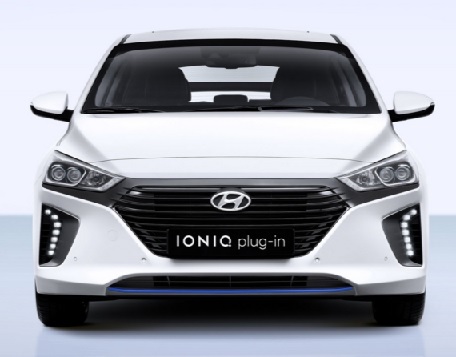 which has gone up to 31 eco-friendly vehicles coming out by 2020, up from the previous goal of 28. The company announced today that one of its new EVs will go 500 kilometers (311 miles) per charge when it comes out after 2021. A small electric SUV will have a driving range of 390 km (about 242 miles) will come out during the first half of next year. The company also announced that it will be launching a hydrogen fuel cell vehicle that can travel more than 580 kilometers (360 miles) after being fueled. The second-generation fuel cell SUV will be coming out early next year. Hyundai said it be going 40% farther than its first-generation fuel cell vehicle, the Tucson ix FCEV. So far, the green car campaign has been led by the Ioniq hybrid, all-electric, and upcoming plug-in hybrid version.
which has gone up to 31 eco-friendly vehicles coming out by 2020, up from the previous goal of 28. The company announced today that one of its new EVs will go 500 kilometers (311 miles) per charge when it comes out after 2021. A small electric SUV will have a driving range of 390 km (about 242 miles) will come out during the first half of next year. The company also announced that it will be launching a hydrogen fuel cell vehicle that can travel more than 580 kilometers (360 miles) after being fueled. The second-generation fuel cell SUV will be coming out early next year. Hyundai said it be going 40% farther than its first-generation fuel cell vehicle, the Tucson ix FCEV. So far, the green car campaign has been led by the Ioniq hybrid, all-electric, and upcoming plug-in hybrid version.

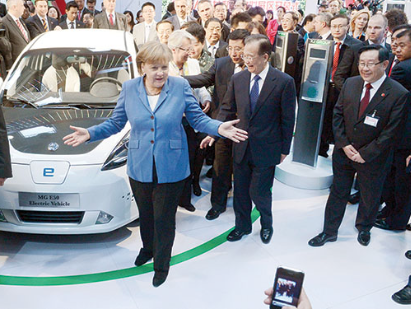 during media interviews this week; and that will likely apply to gasoline-powered vehicles as well. Merkel wouldn’t name the exact year, but said that the UK And France’s plans to ban the sale of new vehicles with internal combustion engines starting in 2040 “were the right approach.” The pressure is on Merkel and auto industry executives as the Sept. 24 election approaches. Merkel is seeking her fourth term in the office, and has been called upon to make sure auto executives respond ethically to the vehicle emissions scandal.
during media interviews this week; and that will likely apply to gasoline-powered vehicles as well. Merkel wouldn’t name the exact year, but said that the UK And France’s plans to ban the sale of new vehicles with internal combustion engines starting in 2040 “were the right approach.” The pressure is on Merkel and auto industry executives as the Sept. 24 election approaches. Merkel is seeking her fourth term in the office, and has been called upon to make sure auto executives respond ethically to the vehicle emissions scandal. 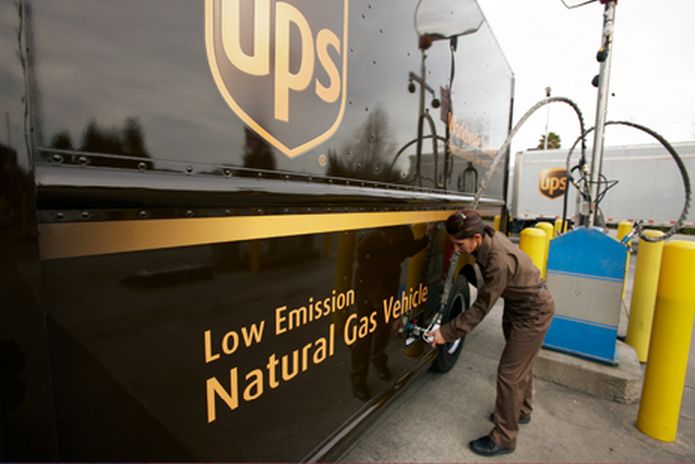 alternative fuel since about 2008, the results haven’t gone in that direction. The article cites cheap gasoline prices and growth in EV sales, including orders being placed on the Tesla Model 3, as evidence for its argument. While the natural gas-powered Honda Civic was taken off the market a few years ago, NGVs continue to play an important role for fleets converting over to clean fuel options. Transit and city fleets are bringing them in with a few major corporate fleets like UPS, Ryder System, and AT&T, continuing to acquire them and install more CNG fueling stations. Ford and GM continue to add the CNG option to their pickup trucks and van offerings. Renewable natural gas is also supporting the clean fuel and its infrastructure, as more fleets start using RNG. Liquefied natural gas is also playing a role in adoption of the fuel in various transport sectors.
alternative fuel since about 2008, the results haven’t gone in that direction. The article cites cheap gasoline prices and growth in EV sales, including orders being placed on the Tesla Model 3, as evidence for its argument. While the natural gas-powered Honda Civic was taken off the market a few years ago, NGVs continue to play an important role for fleets converting over to clean fuel options. Transit and city fleets are bringing them in with a few major corporate fleets like UPS, Ryder System, and AT&T, continuing to acquire them and install more CNG fueling stations. Ford and GM continue to add the CNG option to their pickup trucks and van offerings. Renewable natural gas is also supporting the clean fuel and its infrastructure, as more fleets start using RNG. Liquefied natural gas is also playing a role in adoption of the fuel in various transport sectors.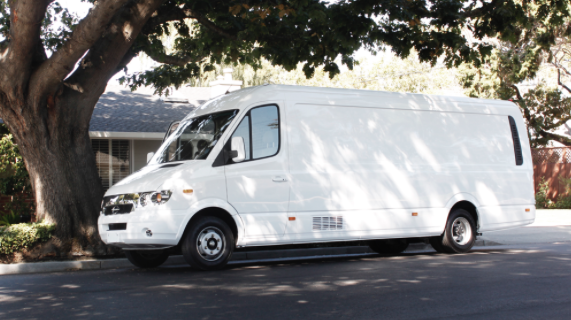 all-electric commercial vans will start being delivered later this year. The company is co-owed by Hong Kong-based FDG Electric Vehicles Limited. FDG owns other EV companies, including Prevok, a Chinese joint venture with Smith Electric Vehicles. Chanje will tap into FDG’s EV and lithium ion battery manufacturing resources. The large electric van will be sold to fleets “at a previously unavailable scale and price,” and will be “purpose-built to be a long-life truck.”
all-electric commercial vans will start being delivered later this year. The company is co-owed by Hong Kong-based FDG Electric Vehicles Limited. FDG owns other EV companies, including Prevok, a Chinese joint venture with Smith Electric Vehicles. Chanje will tap into FDG’s EV and lithium ion battery manufacturing resources. The large electric van will be sold to fleets “at a previously unavailable scale and price,” and will be “purpose-built to be a long-life truck.”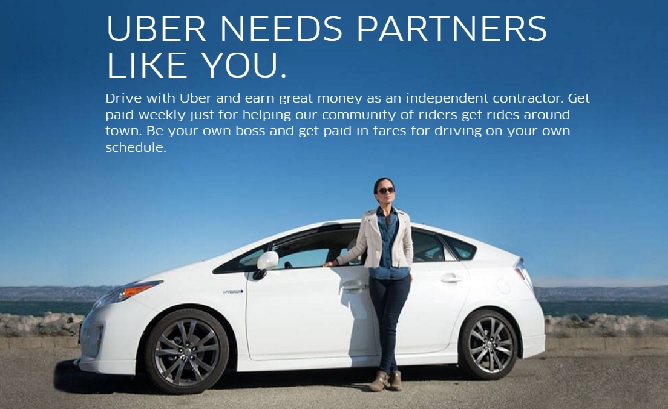 University of Michigan Transportation Research Institute, Texas A&M Transportation Institute, and Columbia University. Research was done in Austin, Texas, where ride-hail services like Uber and Lyft pulled services last year due to a local ordinance. The study found that 41% of those surveyed turned to their own vehicle after Uber and Lyft left the market; and 9% actually bought an additional car for their transportation needs. Three percent switched over to public transit; and 42% went over to another, smaller transportation networking company.
University of Michigan Transportation Research Institute, Texas A&M Transportation Institute, and Columbia University. Research was done in Austin, Texas, where ride-hail services like Uber and Lyft pulled services last year due to a local ordinance. The study found that 41% of those surveyed turned to their own vehicle after Uber and Lyft left the market; and 9% actually bought an additional car for their transportation needs. Three percent switched over to public transit; and 42% went over to another, smaller transportation networking company.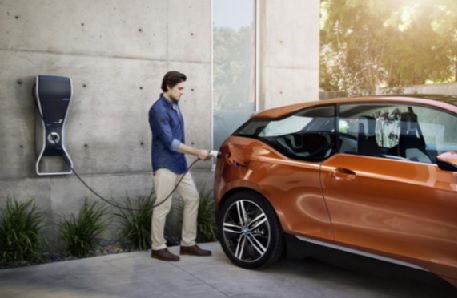 with the new plug-in hybrid Mini. Plug-in vehicles made up 4.5% of marketshare for all of the company’s vehicle sold last month. For the year, the automaker has delivered 50,711 plug-in vehicles, up a huge gain of 74.8% for the year.
with the new plug-in hybrid Mini. Plug-in vehicles made up 4.5% of marketshare for all of the company’s vehicle sold last month. For the year, the automaker has delivered 50,711 plug-in vehicles, up a huge gain of 74.8% for the year. managers, sustainability directors, business owners, legislators, and others attending
managers, sustainability directors, business owners, legislators, and others attending 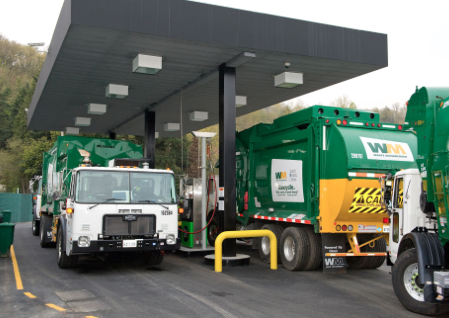 are open to the public, to fuel its 6,000 unit fleet of natural gas trucks. It’s the largest natural gas-powered fleet of its kind in North America. The company is moving toward its goal of reducing carbon dioxide 15% from its fleet by 2020. Much of the fuel being used is renewable natural gas, which comes from waste matter stored in landfills. “We invest in building our own fueling infrastructure to refuel our vehicles, while making CNG available to other commercial fleets and individuals,” said Marty Tufte, Waste Management corporate fleet director.
are open to the public, to fuel its 6,000 unit fleet of natural gas trucks. It’s the largest natural gas-powered fleet of its kind in North America. The company is moving toward its goal of reducing carbon dioxide 15% from its fleet by 2020. Much of the fuel being used is renewable natural gas, which comes from waste matter stored in landfills. “We invest in building our own fueling infrastructure to refuel our vehicles, while making CNG available to other commercial fleets and individuals,” said Marty Tufte, Waste Management corporate fleet director. on the matter. It was part of a four-day road trip to raise $1.5 billion to pay for production of the Model 3 through junk-rated bonds. The company is spending a lot of cash on building out the Fremont, Calif., assembly plant, and battery packs at its Gigafactory in Nevada. The company burned through a record $1.16 billion in cash during the second quarter. It looks good for Tesla hitting the $1.5 billion this week.
on the matter. It was part of a four-day road trip to raise $1.5 billion to pay for production of the Model 3 through junk-rated bonds. The company is spending a lot of cash on building out the Fremont, Calif., assembly plant, and battery packs at its Gigafactory in Nevada. The company burned through a record $1.16 billion in cash during the second quarter. It looks good for Tesla hitting the $1.5 billion this week.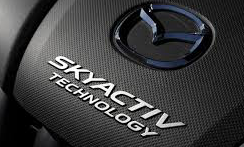 gnition. That will bring 20% to 30% more fuel efficiency than current models on the market with Mazda’s Skyactiv technology. The corporate sustainability campaign will shoot for 2019 to roll out the new Skyactiv-X and its first electric vehicle. That could be coordinated with its Toyota alliance for jointly developing EVs. Sustainable Zoom-Zoom is structured around reducing corporate carbon dioxide emissions, well-to-wheel, 50% by 2030 and 90% by 2050.
gnition. That will bring 20% to 30% more fuel efficiency than current models on the market with Mazda’s Skyactiv technology. The corporate sustainability campaign will shoot for 2019 to roll out the new Skyactiv-X and its first electric vehicle. That could be coordinated with its Toyota alliance for jointly developing EVs. Sustainable Zoom-Zoom is structured around reducing corporate carbon dioxide emissions, well-to-wheel, 50% by 2030 and 90% by 2050.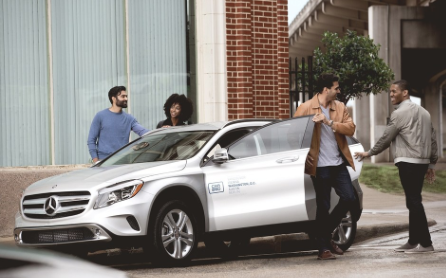 increased 40% year-over-year in the first half of 2017 compared to a year prior. That’s taking place at 11 North American locations with 4.5 million trips taken so far this year. Members are spending 33% more time traveling this year than last. The company is in discussions with other cities about car2go opening shop there, with the company emphasizing the environmental and economic benefits of using its one-way carsharing model.
increased 40% year-over-year in the first half of 2017 compared to a year prior. That’s taking place at 11 North American locations with 4.5 million trips taken so far this year. Members are spending 33% more time traveling this year than last. The company is in discussions with other cities about car2go opening shop there, with the company emphasizing the environmental and economic benefits of using its one-way carsharing model.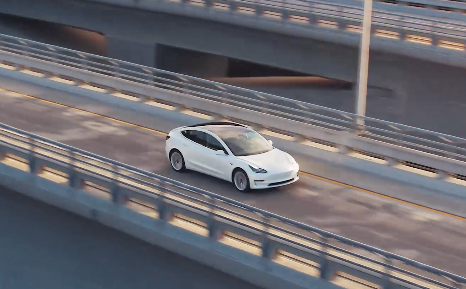 cancellations came from people burning out over having to wait an hour and a half to complete the order process online. During a quarterly earnings call yesterday, the company announced that it had burned through about $1.16 billion in cash during Q2 to keep the Model 3 factory on schedule along with Gigafactory battery production. Stocks closed yesterday with a 7.4% jump to $350.13 as investors remained enthusiastic.
cancellations came from people burning out over having to wait an hour and a half to complete the order process online. During a quarterly earnings call yesterday, the company announced that it had burned through about $1.16 billion in cash during Q2 to keep the Model 3 factory on schedule along with Gigafactory battery production. Stocks closed yesterday with a 7.4% jump to $350.13 as investors remained enthusiastic.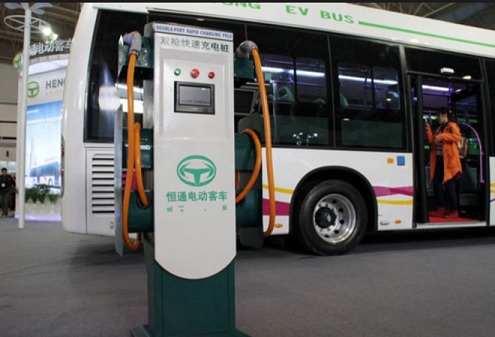 property and honoring trade practices between the nations. Senate Democratic leader Chuck Schumer was one of the three. Trump has been pressing China to cut steel production to cut oversupply and to rein in North Korea’s missile testing program. The Obama administration, while also concerned over high tariffs and equitable trade, had established strong relations with the country on vehicle electrification and renewable energy goals. Now it’s up to California and Gov. Jerry Brown to keep those goals going – electric cars, buses, and trucks. China is likely to adopt some version of California’s zero emission vehicle policy by the end of the year. But relations between the two nations could be a stumbling block.
property and honoring trade practices between the nations. Senate Democratic leader Chuck Schumer was one of the three. Trump has been pressing China to cut steel production to cut oversupply and to rein in North Korea’s missile testing program. The Obama administration, while also concerned over high tariffs and equitable trade, had established strong relations with the country on vehicle electrification and renewable energy goals. Now it’s up to California and Gov. Jerry Brown to keep those goals going – electric cars, buses, and trucks. China is likely to adopt some version of California’s zero emission vehicle policy by the end of the year. But relations between the two nations could be a stumbling block.